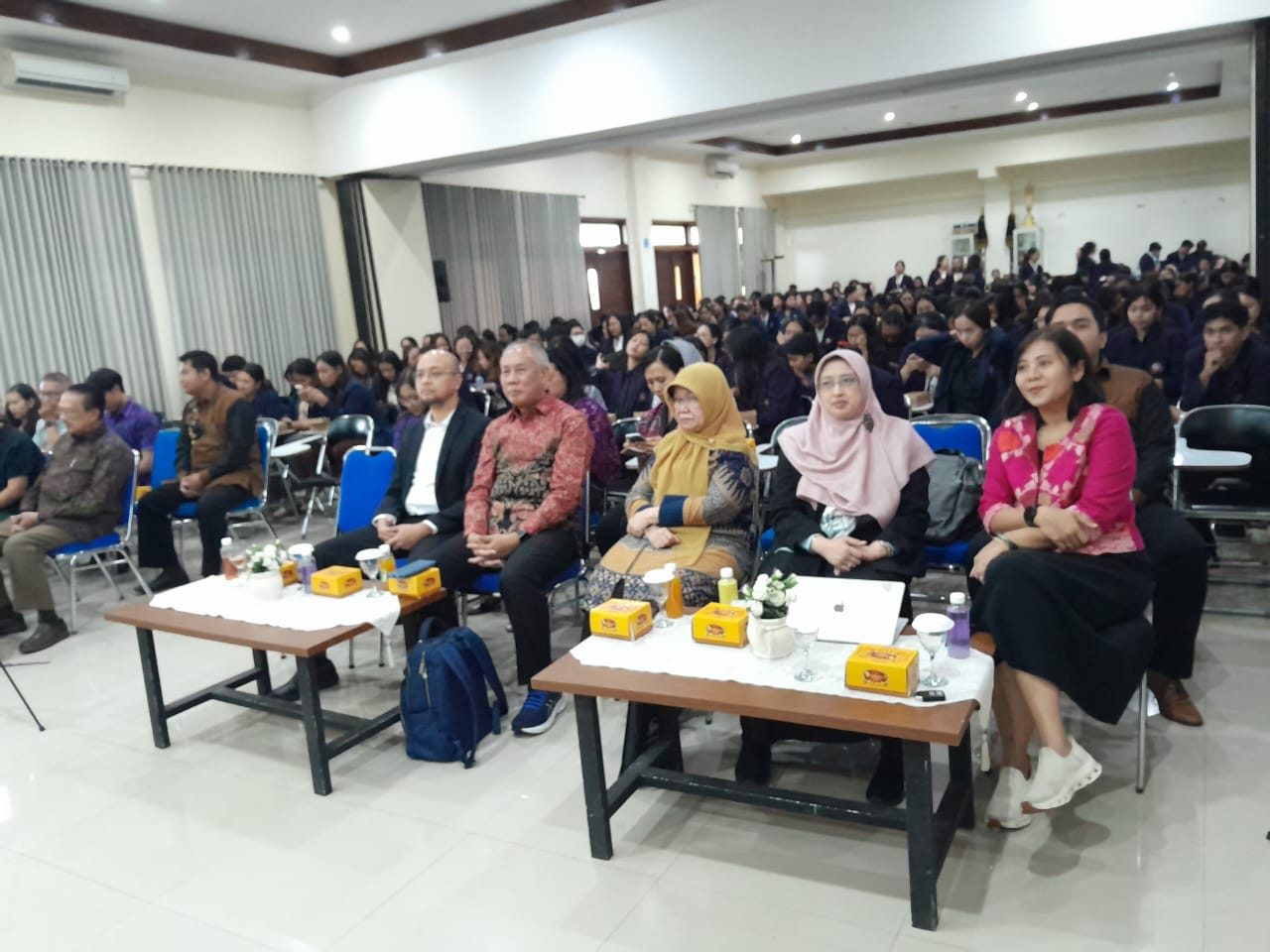 “A university should not be an ivory tower. They should be able to provide help to others,” said the Director of Testing Service Unit Faculty of Pharmacy UNAIR (ULP Farmasi), Prof. Dr. rer. nat. Gunawan Indrayanto. According to Prof. Gunawan, the presence of an assessment service unit such as the one present in the faculty is absolutely needed.
“A university should not be an ivory tower. They should be able to provide help to others,” said the Director of Testing Service Unit Faculty of Pharmacy UNAIR (ULP Farmasi), Prof. Dr. rer. nat. Gunawan Indrayanto. According to Prof. Gunawan, the presence of an assessment service unit such as the one present in the faculty is absolutely needed.
Besides to be able to serve the community, universities should start to change their underlying philosophies. In the past, universities only served to “manufacture graduates.” However, with the presence of this Testing Service Unit, the Faculty of Pharmacy UNAIR will be able to connect with the industry, which in turn will enable them to absorb UNAIR graduates in the future.
Prof. Gunawan said that the industry is able to judge the real needs of the market. They are able to provide suggestions regarding which abilities are needed from pharmacy graduates.
In accordance with its tract, ULP Farmasi can also be utilized for educational purposes. “We are actually working for the public. We should note, though, that they are the ones on the ground. In the future, this can be used as a source of input for academic activities so that students can directly contribute to the society,” said Prof. Gunawan.
In the future, the Faculty of Pharmacy intends to prepare graduates for work, and not only to graduate them for training. “In the moment, there is still a gap between the industry and universities, and we are in the process of bridging it,” Prof. Gunawan explained.
An Accredited Institution
Regarding ULP Farmasi, Prof. Gunawan admitted that in the beginning, the institution that he runs started from zero. Using equipment from the Faculty of Pharmacy, the ULP convinced external parties. When it was first operated, the ULP had already tested shrimp, fish, soybeans, traditional medicine, or other samples submitted by the community.
“When not used for academic activities, we used the faculty equipment. After four years, using the revenues we obtained, we could at last purchase an Rp 3 billion equipment. Presently, we have three HPLC and one GC/MS, and all of those are working 24 hours. To increase efficiency, work has been divided into three shifts,” explained the Professor of Pharmaceutical Biology. In the end, ULP Farmasi was able to earn accreditation from the National Accreditation Committee (KAN) for testing laboratory.
According to Prof. Gunawan, this accreditation is very important, considering that many laboratories are untrusted. On the other hand, conviction should be built through hard work. “Those who we serve indeed need the best results. In order to be able to become exporters, they need trusted testing results. For that purpose, we need excellent tools and methods,” explained Prof. Gunawan.
Prof. Gunawan added that during testing, ULP Farmasi UNAIR has strived relentlessly, from during the retrieval of sample, the test itself, and also certification, he recognizes that ULP always performs it meticulously. “For that reason, we need to propose a relatively more expensive price. However, it is always accompanied with the best results also. We intend to help the industry since they do not have testing labs themselves,” said the consultant of chemical and pharmaceutical analysis.
Research Contracts
In the future, Prof. Gunawan hopes that his institution may be able to hold research contracts with industries. However, his main concern is the readiness of the infrastructure, where ULP Farmasi should provide the full range of equipment to be used. “This is certainly difficult to perform if we do not even have the tools. Our analysis tools are good, but production and industrial units are more comprehensive than ours,” said Prof. Gunawan.
Prof. Gunawan said that to realize those objectives, universities need commitments of the government, especially in terms of support to develop research activities. “To create research contracts with the industry, we need to be trustworthy. To be trustworthy, we must be an expert in research. Unfortunately, our research is still dependent on government subsidies that are insufficient,” he added.
To initiate, Prof. Gunawan said he has developed several small-scale research cooperative projects. To build trust, he admits that we still need several big leaps. “We’ve already began with small-scale research. To enlarge the scale, we need to progress gradually,” said Prof. Gunawan.








